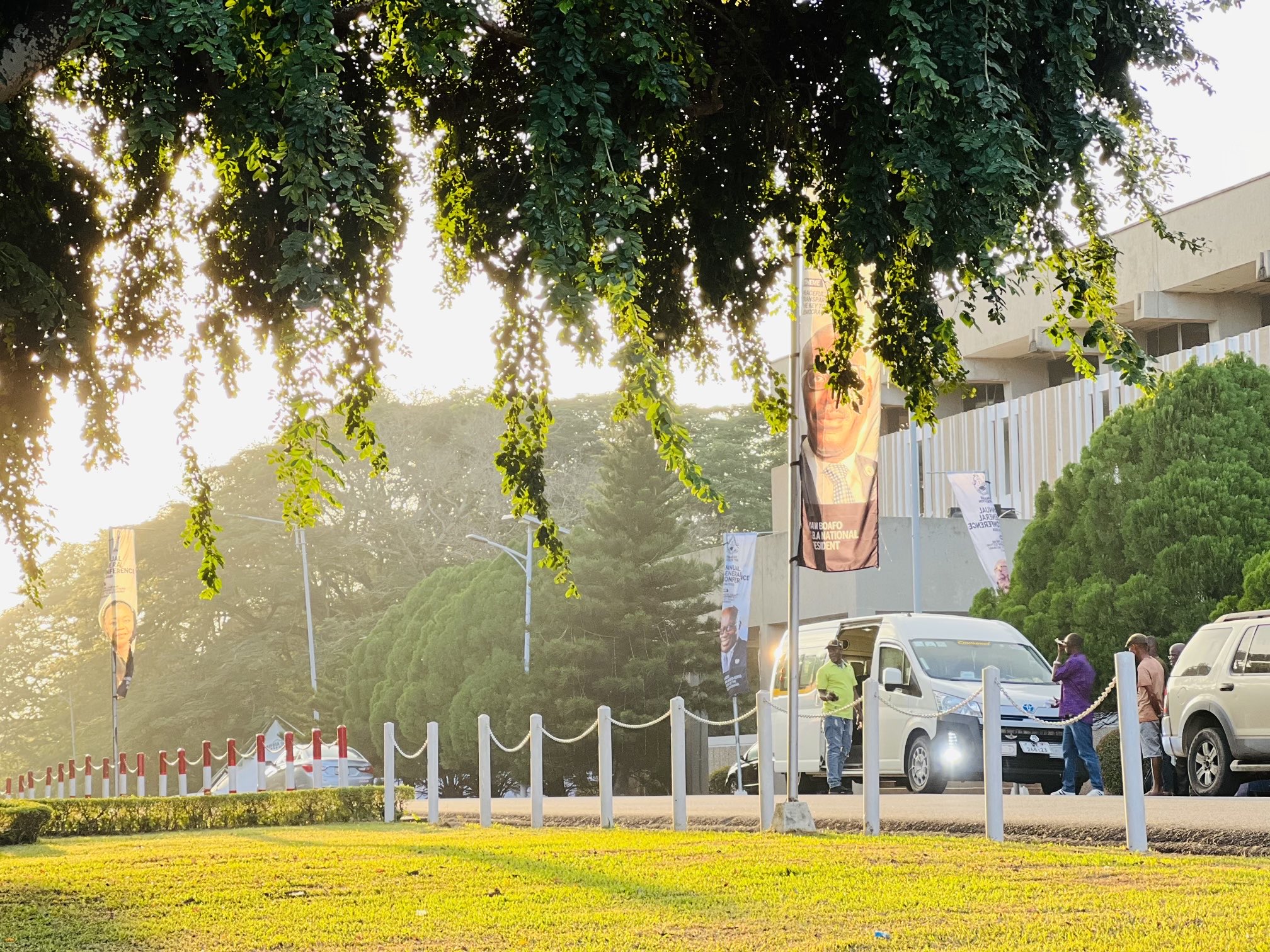Leveraging the Ghana NLP API to Localize Technology and Open Knowledge for African Communities
 Prince Larbi
Prince Larbi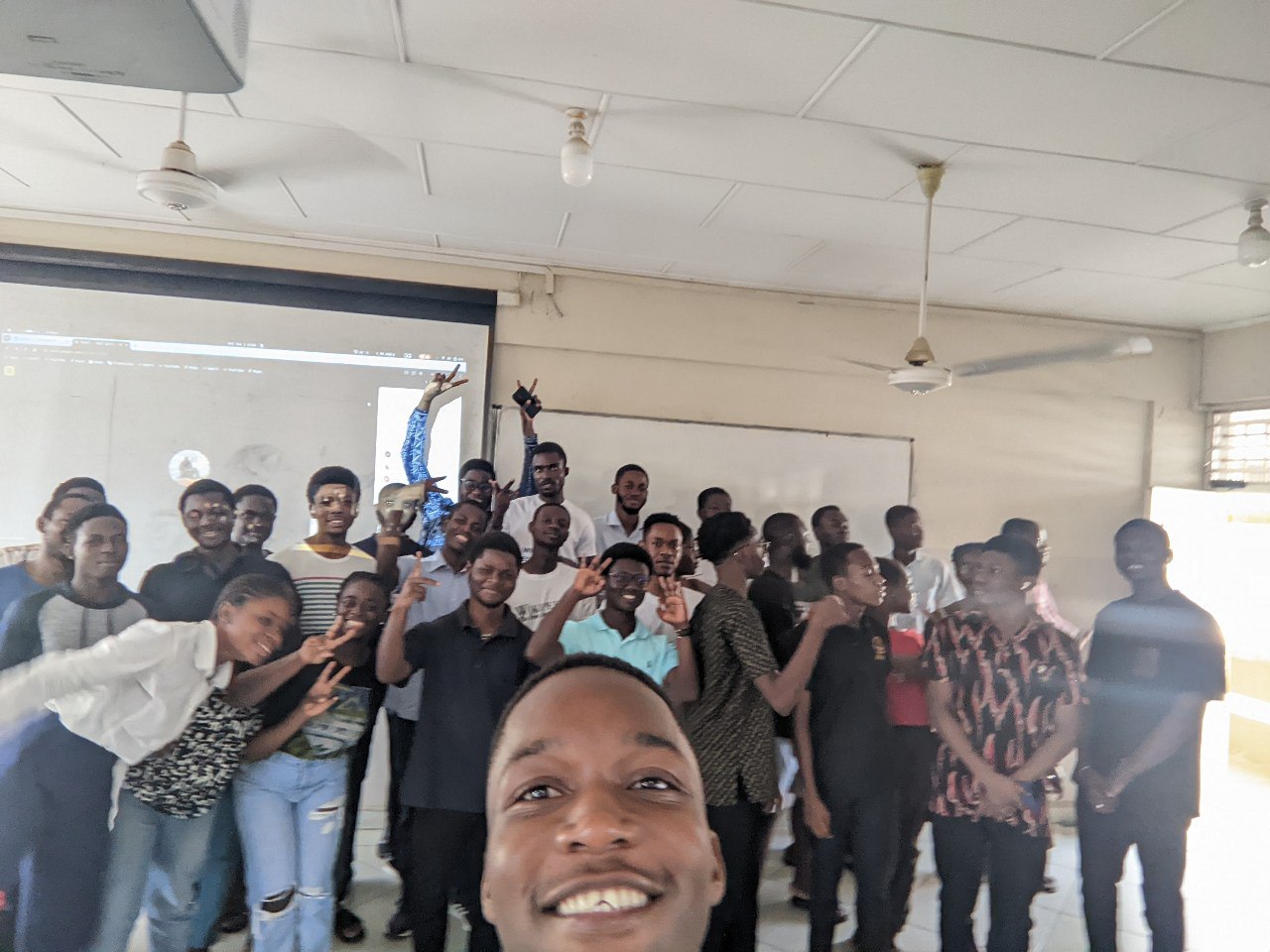
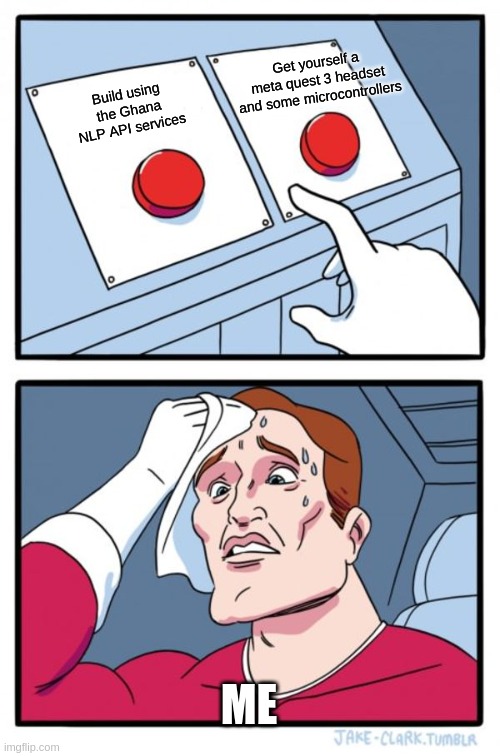
Ghana Natural Language Processing (NLP) offers powerful tools like translation services, speech-to-text (STT), and text-to-speech (TTS) solutions in local languages. These innovations are essential for developers, startups, wiki-people and entrepreneurs aiming to build platforms that genuinely reflect the linguistic diversity of Ghana and Africa at large. I’ve personally implemented these tools in some of my builds, and the impact has been transformative, not just for me but for the people I engage with in real-time.

The Open Foundation West Africa (OFWA) has been a driving force in promoting open knowledge, digital literacy, and tech innovation across the region. Through its Africa Wikimedia Technical Community and The Wikitech Student Developers Club, OFWA has laid the groundwork for digital transformation in West Africa. Funded by the Wikimedia Foundation, these initiatives empower individuals and communities to thrive in the digital age, ensuring no one is left behind. But this is just the beginning.
Ghana NLP—a service that actively works to localize technology, ensuring that African languages are given their rightful place in the digital world.
I tell you! I tried to build from scratch : )
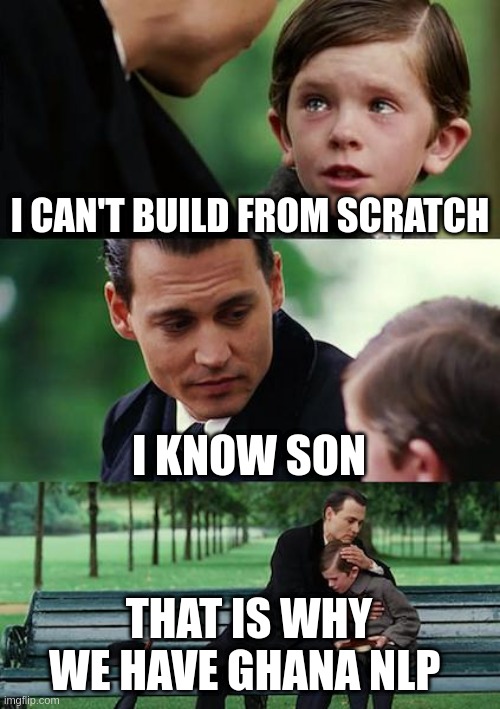
The Streets Speak, yah charle
A while back, I took to the streets of Ayeduase, Kejetia, and on the Kwame Nkrumah University of Science and Technology, (KNUST) campus, engaging with everyday people in a way that was both unconventional and refreshing. Armed with JALI AI - A minimalistic AI chat tool with African language support, yes, my trusty straw hat,

I posed simple yet thought-provoking questions about tech localization.
It’s easy to assume that the average Ghanaian, especially busy workers in markets and bustling urban centers, might not care about or even have the time to think about such topics. But to my surprise, many were not only open to engagement—they were enthusiastic about it.
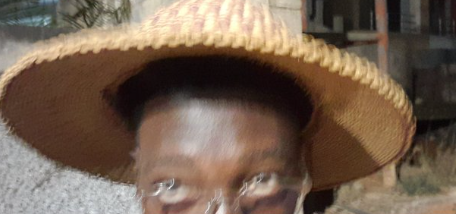
I like to think my less intimidating approach played a role, but it’s also because the questions I asked respected their point of view. I didn’t try to impose ideas; I genuinely wanted to know how they felt about the concept of tech localization in their native languages.
One interaction that stood out was when I used Ghana NLP to generate a real-time translation and audio output for a group of market sellers. Their reactions were priceless—pure excitement. Some even asked when I would make a mobile version available.

To them, this wasn’t just a nice-to-have feature; they saw real-world, practical value. They wanted to see it integrated into their day-to-day platforms, which, I must say, is a market secret I’m now sharing with you and any African startup or big tech company willing to take the leap.
Inclusion of Oral Tradition in our time, the Digital Age!
During the launch of the Wikitech Student Developers Club, Kumasi on the KNUST Campus, July 1st, one of my favorite moments was when a good friend of mine posed a question that hit the nail on the head: "What is the point of Akan or local language Wikipedia if the people we’re making it for don’t even read it?"
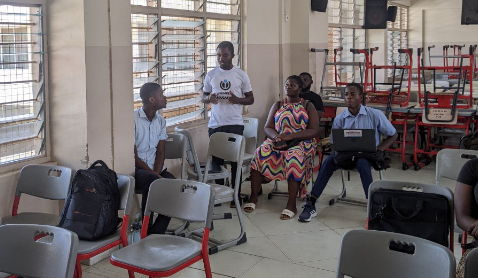
It’s a legitimate question. A significant chunk of our population communicates orally, and the written form of many African languages isn’t as commonly used as English. But here’s the thing—documentation in our languages is crucial. There are students, researchers, and even professionals who rely on these resources. In the future, as tech continues to localize, we could have rich language resources that our people can readily access in ways that feel native to them.
The key is to make sure this is done right. This is where Ghana NLP comes in. Its STT and TTS services allow us to break down complex, written forms into digestible, spoken content. Imagine the potential for education, not just for young students but also for older generations who might not be as comfortable with reading and writing in their native languages but excel in oral communication.
Research Backing Non-English Speakers in Ghanaian Tech
It’s not just anecdotal evidence that points to the importance of local language integration in tech. Research shows that a significant number of people in Ghana don’t primarily communicate in English. This has far-reaching implications for tech adoption. Services that are primarily in English miss out on a vast chunk of the population, potentially excluding them from digital solutions that could improve their lives. By integrating local languages, we bridge this gap, making tech not just accessible but usable by everyone.

For instance, Ghana’s 2021 Census data reveals stark disparities in digital technology adoption, particularly in regions where English proficiency is low or where access to technology is limited by socioeconomic factors. The correlation between education, income, and digital adoption is evident: internet usage is near universal among those with tertiary education but drops significantly to just 18% for people with no formal education. This suggests that platforms in English are less accessible to the majority of the population, who may not have advanced education
Reference:
World Bank Blogs:Ten Facts About Digital Technology Adoption in Ghan
Furthermore, localization isn't just a matter of convenience—it’s essential for inclusion. According to reports, rural areas and economically disadvantaged districts have far lower internet usage compared to urban centers, reinforcing the need to cater to these underserved regions through localized technology.
Language Barriers in Wikipedia and Wikimedia Projects
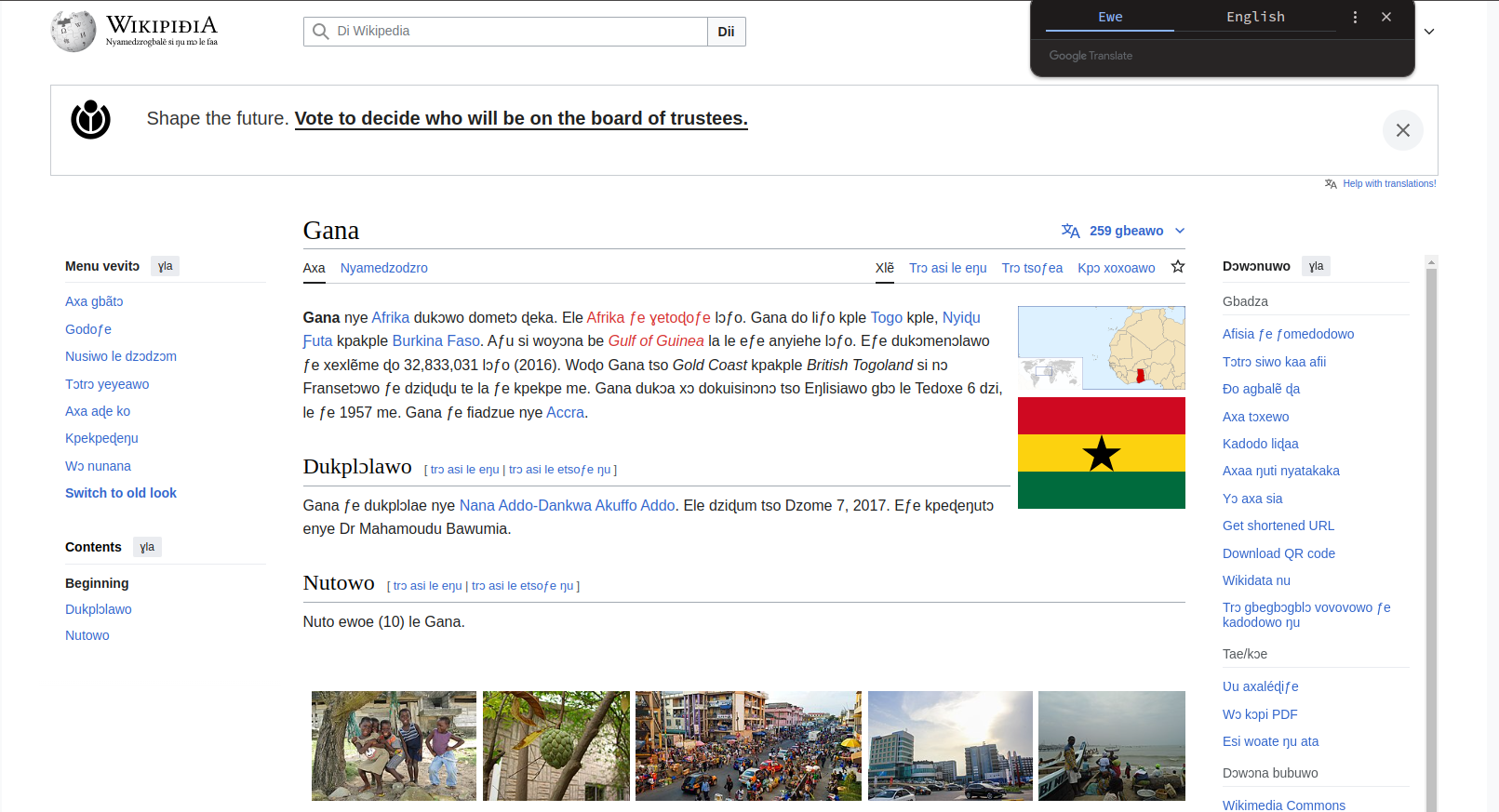
When it comes to Wikimedia projects, Ghana NLP is a game-changer. Translating technical terms and complicated phrases into African languages can often be a challenge, especially in written form. I’ve seen firsthand how the Ghana NLP’s translation services can simplify this process. What used to take hours of painstaking manual work can now be done in seconds, ensuring that documentation, whether in Akan, Ewe, or any other Ghanaian language, is not only accurate but also easy to understand.
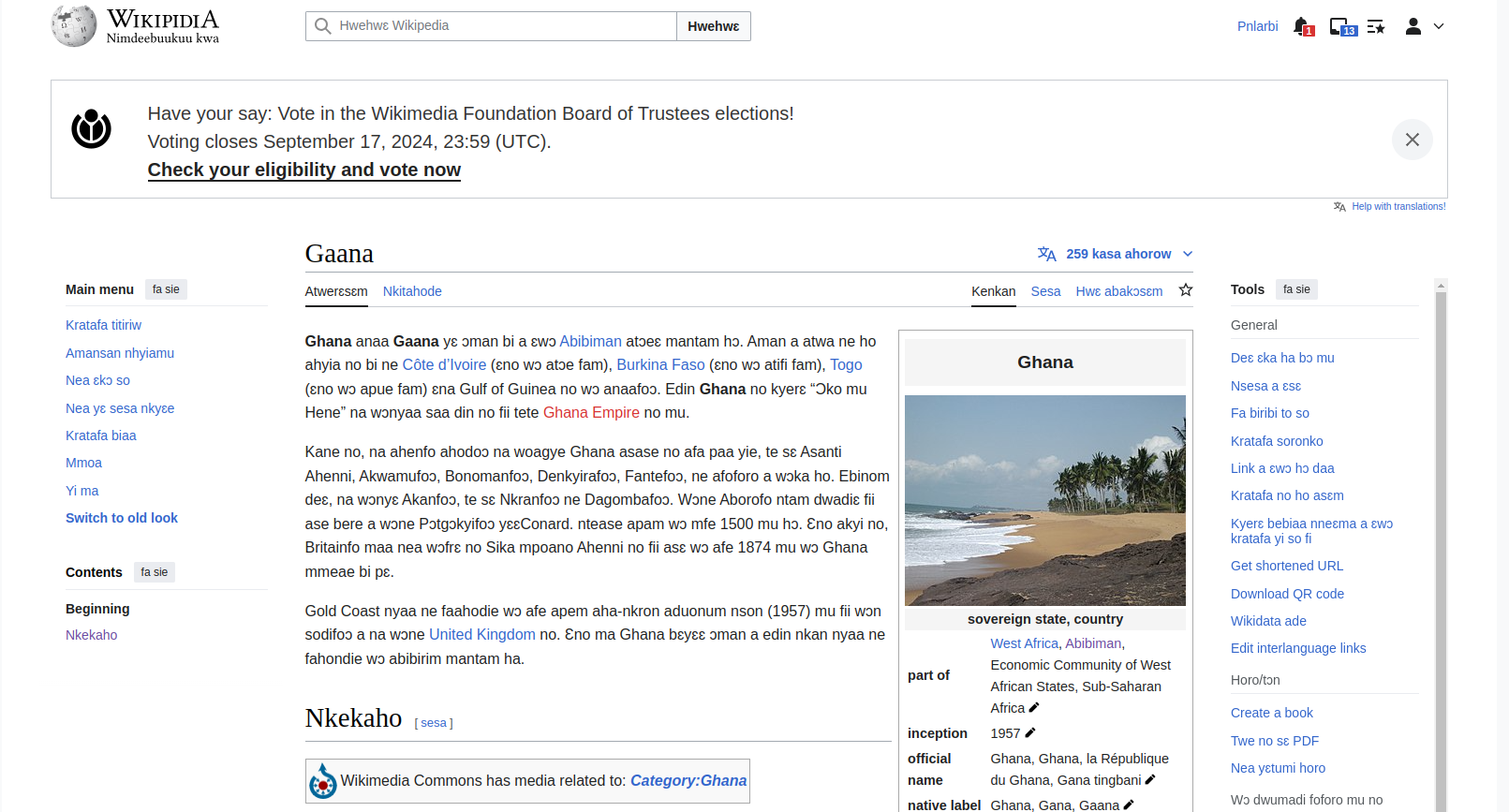
And let’s be honest—most of the heavy lifting in these translations comes from dealing with words or phrases that have no direct equivalent in our local languages. This is where we need intelligent translation tools to help bridge the gap, tools like Ghana NLP that understand not just the words but the context behind them.
Our Video Series
In collaboration with the Wikitech Developer Groups, OFWA, AWMT, and other related communities, we have taken this initiative even further. We’re starting a video series that will dive deep into how developers and businesses can integrate Ghana NLP into their platforms.
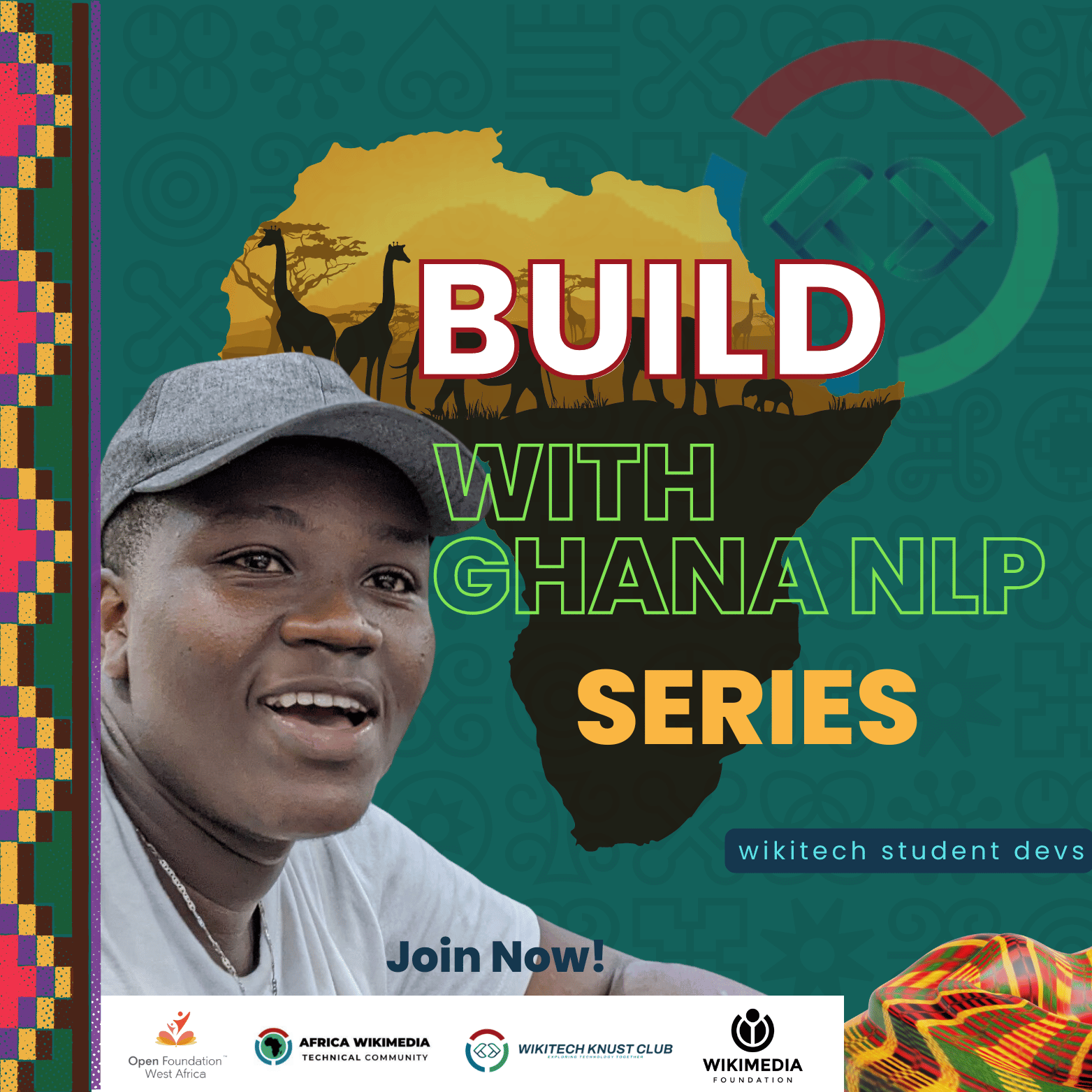
Whether you’re a startup founder looking to create more inclusive products or a developer working on the next big thing in African tech, this one will be for you. Expect insights, real-world use cases, and a step-by-step guide on how to get started with Ghana NLP.
African Tech Truly for the African, the Future!
We’re on the cusp of something big here. African tech doesn’t have to rigidly replicate the rest of the world. We can build solutions that work for us, that reflect who we are, and that serve our unique needs. The Ghana NLP is one of the tools that will help us get there.
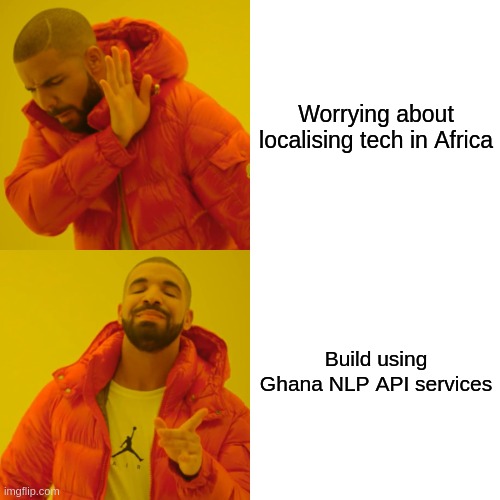
From my street engagements in Ayeduase and Kejetia to the questions raised in high-level discussions at KNUST, one thing is clear: people are ready. They want tech that speaks their language—literally. And as we push forward, whether in collaboration with OFWA or through grassroots projects, we must remember that the future of tech in Africa is one where everyone can participate, regardless of what language they speak. Let’s make it happen.
Now, over to you. What will you build with Ghana NLP? Let’s get local, let’s get real, and let’s revolutionize the tech landscape across the continent.
If you build anything cool and would love for someone to check it out, you can email me, phiddyconcept@gmail.com. Happpy building!
Subscribe to my newsletter
Read articles from Prince Larbi directly inside your inbox. Subscribe to the newsletter, and don't miss out.
Written by

Prince Larbi
Prince Larbi
Enjoy the journey. yoghurt over coffee!! ...any day
